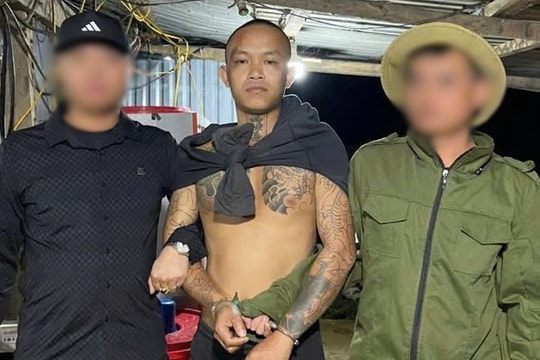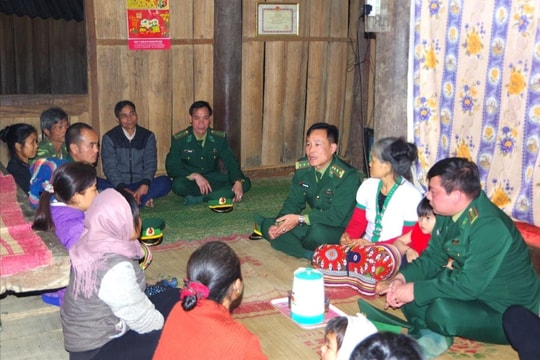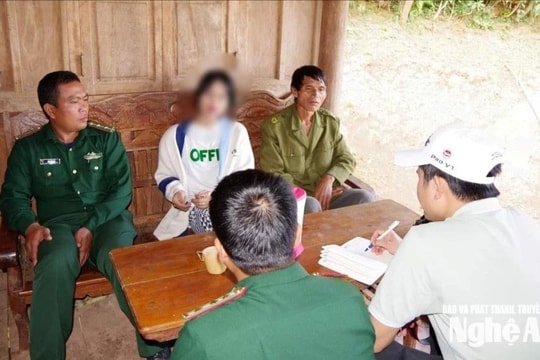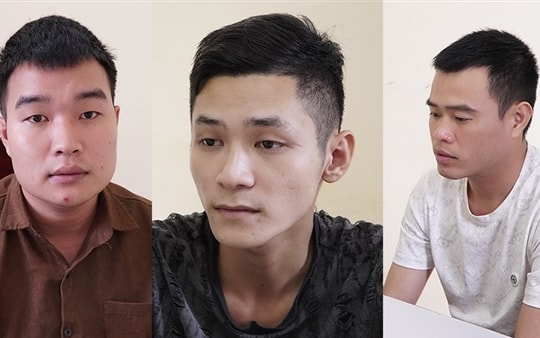Raising public awareness, preventing human trafficking in Nghe An
(Baonghean.vn) - In recent years, the situation of human trafficking crimes in the world and in the region has continued to develop in a complicated manner with increasingly sophisticated nature, methods and tricks. In Vietnam in general and Nghe An in particular, human trafficking crimes, especially those of women and children, are still a painful reality, directly infringing on the life, health, honor and dignity of people, negatively affecting the security situation and social order.
On the occasion of the National Day against human trafficking (July 30), Nghe An Newspaper had an interview with Lieutenant Colonel Tran Van Hung - Deputy Head of the Criminal Police Department, Nghe An Provincial Police.
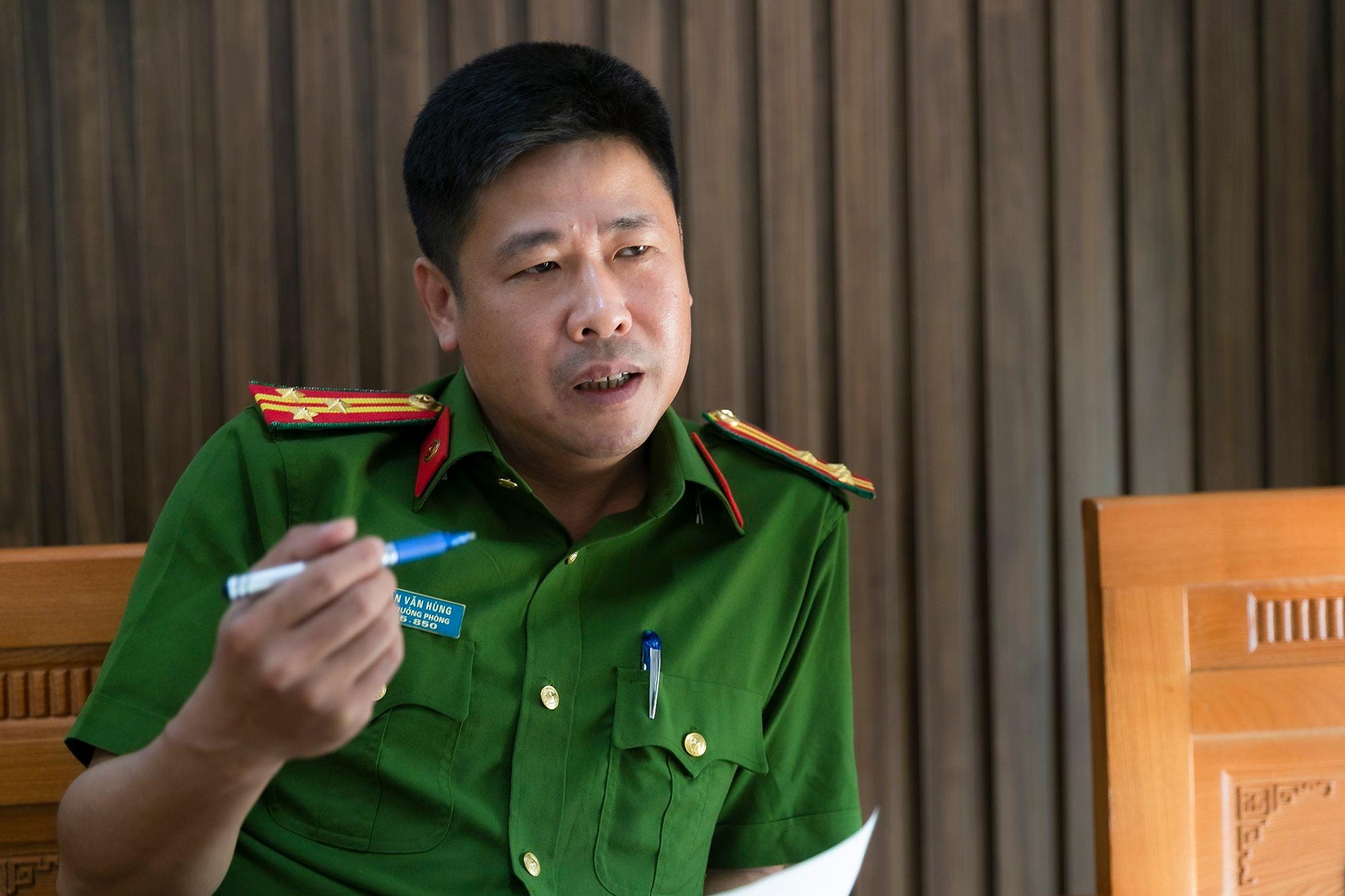 |
| Lieutenant Colonel Tran Van Hung informed about the current situation of human trafficking in Nghe An province. Photo: Duc Anh |
Reporter: Recently, human trafficking is still happening in Nghe An, especially in the highland areas. Could you please tell us more about this situation?
Lieutenant Colonel Tran Van Hung:In Nghe An, the disasterhuman traffickinghas been and is taking place; concentrated in border areas, particularly difficult areas. The whole province has 6 land border districts and 5 sea border districts and some mountainous localities. Basically, the economic life and awareness of people in this area are still low; livelihoods are difficult. People often tend to leave their locality to find jobs with higher income. In this area, the number of women and girls nearing adolescence with difficult circumstances, unwanted pregnancies is also quite common... These are the conditions that criminals who buy and sell people often take advantage of to operate.
Recently, a large number of human trafficking cases have been discovered and handled. Most of these cases took place many years ago. Victims were deceived or voluntarily sold to China, Cambodia... and then returned to report... In addition, there are a number of new cases. There are women and underage girls who were lured, enticed or voluntarily went to China, Cambodia and then sold, or agreed to be sold, even with the consent of the family and the victim.
What is alarming now is that there are a number of underage or newly-adult girls in difficult circumstances, who have unwanted pregnancies and voluntarily go to China to give birth and then sell them for money. Some women and underage girls, through social networks such as Facebook and Zalo, search online for someone to take them to China without even knowing who is taking them. All contact is made and instructions are given over the phone; only when they reach the border are strangers picked up and taken away. And wherever they go, they cannot determine the address.
PV: To effectively prevent and combat human trafficking, identifying the methods of criminals is very important. Through successful projects, how can we identify the subjects and methods of human trafficking?
Lieutenant Colonel Tran Van Hung:Most of the human trafficking cases are carried out by criminal rings, with a tight structure between domestic and foreign subjects, with many tricks of promising jobs, marriage brokerage, and adoption. They often go online to get acquainted, then lure girls and women in rural areas who need to find jobs to follow them to the border to find work, or pretend to be in love and then sell them to "human traffickers". Even relatives deceive each other and sell them abroad. In many cases, friends play with each other every day, but when they need money to play, they are ready to lure and sell their friends to bad guys...
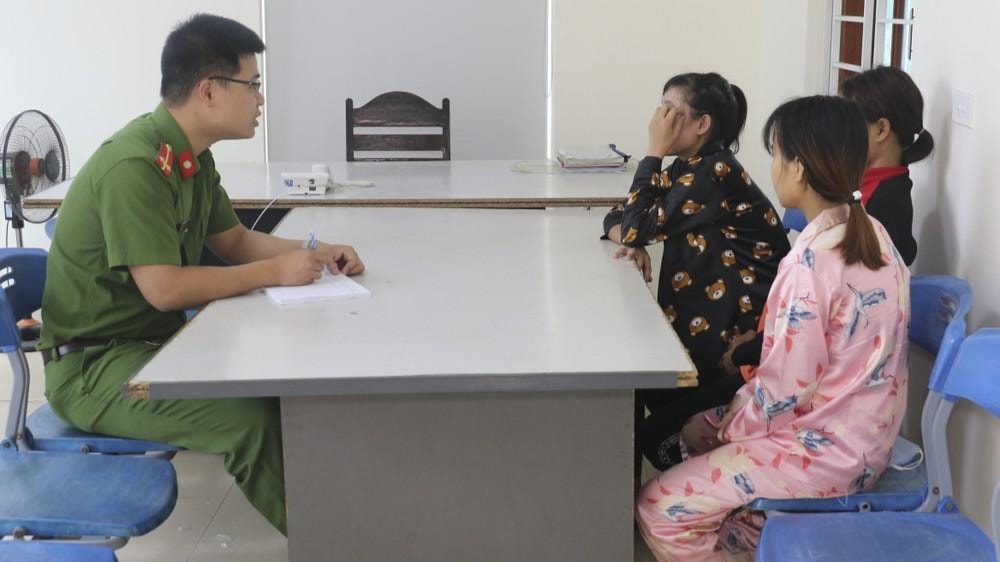 |
| Nghe An Police Department's Criminal Police discovered, rescued and returned to their hometown 3 pregnant women who had crossed the border to sell their children abroad. Photo courtesy |
Line objects, active groupshuman traffickingmainly in the Vietnam - China border areas such as Lang Son, Quang Ninh provinces...; Vietnam - Cambodia border areas such as Kien Giang, Tay Ninh provinces... Through investigation and verification, in Nghe An province there are almost no criminal networks or organizations buying and selling people. The criminals are the previous victims; or the people in the locality who previously went to Cambodia, China to do business and then returned to seduce and entice people in the village, even their relatives and siblings.
PV: Implementing plans to prevent and combat human trafficking at all levels and sectors, how have the authorities fought against this type of crime in recent times?
Lieutenant Colonel Tran Van Hung:In recent times, the functional forces of Nghe An province, with the core being the Provincial Police and the Nghe An Border Guard, have clearly identified this as a major topic to be resolutely, focused on, fought against, and prevented. In the prevention work, the functional forces have closely coordinated to deploy basic professional activities such as grasping the area, grasping the households, grasping the people. Key areas are areas affected by human trafficking; areas with people at risk of being victims; areas vulnerable to human trafficking crimes. The households that are noticed and listed for monitoring include those in difficult economic circumstances; with underage girls, women, newly-adults, pregnant women in difficult circumstances; households with people going to China and Cambodia to do business; households with strangers appearing in the family... From here, the forces will carry out public propaganda, even deterrence to eliminate the conditions that human trafficking criminals can take advantage of to operate.
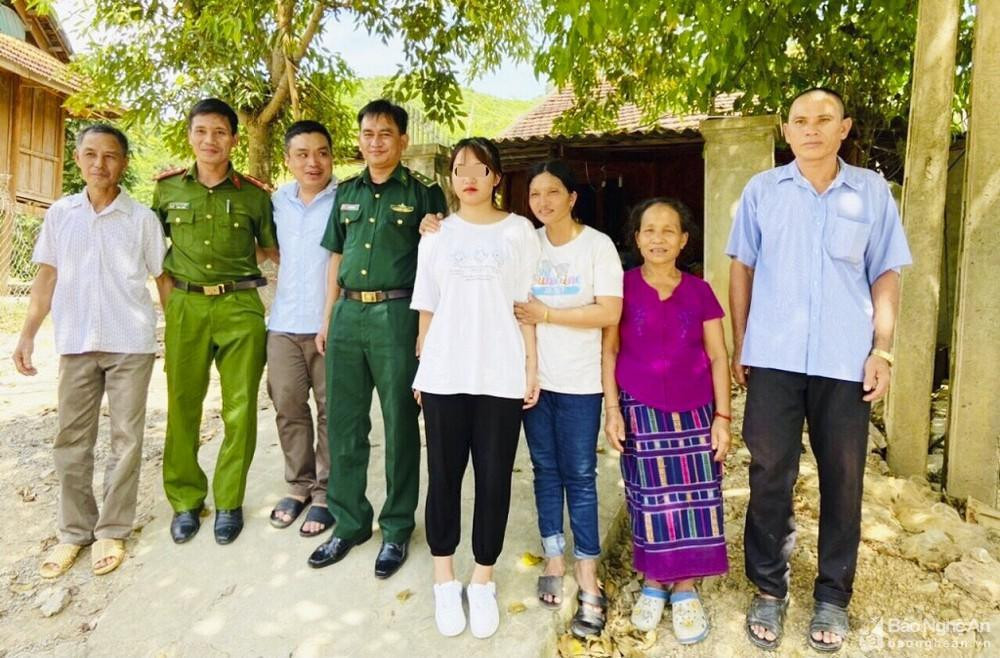 |
| Nghe An police coordinated with functional forces to hand over the victim of human trafficking to his family. Photo courtesy |
In the fight, the functional forces have promptly received, verified, and handled denunciations, reports, and recommendations for prosecution of crimes of human trafficking; investigated and discovered cases and crime rings of human trafficking, and arrested subjects; implemented measures to rescue, receive, protect, and support victims according to the provisions of law; launched peak campaigns to attack and suppress crimes of human trafficking and related crimes, focusing on key routes and areas... From the beginning of 2021 to now, Nghe An Provincial Police and the Provincial Border Guard have discovered, arrested, and prosecuted 14 cases of human trafficking with 24 defendants, rescued 14 victims of human trafficking cases; rescued 29 people suspected of being victims (there is no basis to determine because people contacted to go abroad to work and were exploited).
Another effective measure that the forces have implemented is to ensure economic development and social security and reintegrate into the community. Specifically, the Provincial Police have increased their mobilization and coordination with organizations and individuals to provide material support to poor families and vulnerable victims. The Border Guard supports the livelihoods of local people such as livestock farming, crop cultivation, economic development, etc. When vulnerable people and victims are supported, they themselves will not continue to be lured or become criminals of human trafficking.
PV: In order to thoroughly prevent the continued situation of human trafficking, in your opinion, what measures should we implement? Which measures should be the focus?
Lieutenant Colonel Tran Van Hung:In recent years, all levels and sectors have paid great attention and resolutely implemented measures to prevent and combat human trafficking. On May 10, 2016, the Prime Minister issued Decision No. 793/QD-TTg, designating July 30 every year as "National Day for Prevention and Combat of Human Trafficking", with the goal of mobilizing all resources, promoting the combined strength of the entire political system and the entire population to participate in preventing, stopping, and gradually repelling human trafficking crimes nationwide... Nghe An Provincial People's Committee issued Plan No. 179 KH-UBND dated March 16, 2022 on implementing the Program for Prevention and Combat of Human Trafficking; on July 19, 2022, Nghe An Provincial People's Committee continued to issue Plan No. 519/KH-UBND on implementing activities in response to National Day for Prevention and Combat of Human Trafficking (July 30).
 |
| Strengthen propaganda work extensively, regularly, on many platforms to prevent and combat human trafficking. Photo: Document |
The decisions, plans and solutions to completely prevent the situation of buying and selling people have been clearly stated. Specifically: Strengthening communication and propaganda work to prevent crimes; further improving the effectiveness of the fight, investigation and handling of crimes, especially new methods and tricks of committing crimes; effectively implementing the work of receiving and supporting victims of buying and selling people to reintegrate into the community... The problem is that we need to implement these solutions well. In particular, it is necessary to focus on early prevention work, from afar, from the grassroots; focusing on socio-economic development in remote, mountainous and ethnic minority areas; solving social security issues, employment for workers; strengthening the effectiveness and efficiency of State management of security and order, especially the management of residence, exit and entry; deploying peak periods, suppressing crimes of buying and selling people in the whole area.
One of the solutions that needs to be especially well implemented is propaganda and communication to raise awareness among the people. To do this, the entire political and social system needs to participate. Propaganda work needs to be carried out regularly and extensively in many forms and on many different platforms and media.
PV: What should Nghe An people do to avoid becoming victims of human trafficking, as well as to effectively fight this type of crime?
Lieutenant Colonel Tran Van Hung:To prevent and combat these types of crimes, first of all, everyone needs to raise their vigilance and protect themselves and their loved ones. This is a necessary factor in prevention work, avoiding creating a favorable environment for criminals to operate. Always be vigilant and wary of strangers or even relatives who return from working far away promising to find jobs or inviting them to cooperate in business. Be wary of promises and enticements to find high-paying jobs in factories, shops, bars, domestic or foreign domestic help or marry rich foreigners. Refuse all help with money or material benefits from others, especially from strangers you have just met.
When you need to go to work outside the locality, people need to carefully research the place, location, where you intend to go and the characteristics and personal background of the people you are going with. Before going, consult everyone's opinions and inform and send messages to your family and relatives about where you will go and who you will go with before deciding to go far. Regularly learn to improve your cultural and legal knowledge, self-protection skills, to ensure your safety and help your loved ones avoid being bought and sold. It is important to always remember the address and trusted phone number, which can be of the government, agencies, organizations, relatives, etc., so that you can contact them for help when necessary. At the same time, propagate to your family members and friends to know and be alert to human trafficking crimes.
When people discover human trafficking, they should report it to the nearest law enforcement agency or government organization. Everyone needs to be aware that, regardless of age, they are entitled to civil and human rights. Therefore, if they are sold into marriage by their own family members, they should contact the police, government, women's association or other social organizations for help.
PV: Thank you!
Trafficking in persons is the sale, transportation, transfer, harboring or receipt of persons, by means of the threat or use of force or other forms of coercion, of abduction, of fraud or deception, of the abuse of power or of a position of vulnerability, or of the giving or receiving of payments or benefits to achieve the consent of a person having control over another person, for the purpose of exploitation.
Exploitation includes: The exploitation of prostitution or other forms of sexual exploitation, forced labor or services, slavery or practices similar to slavery, servitude or the removal of organs.

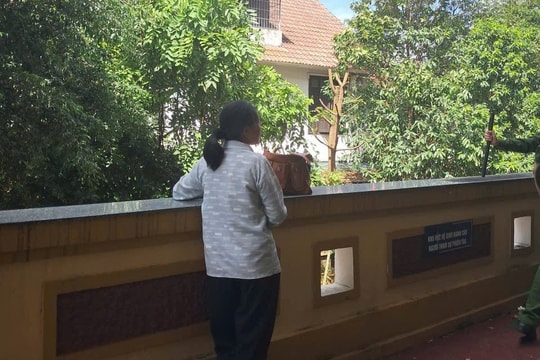
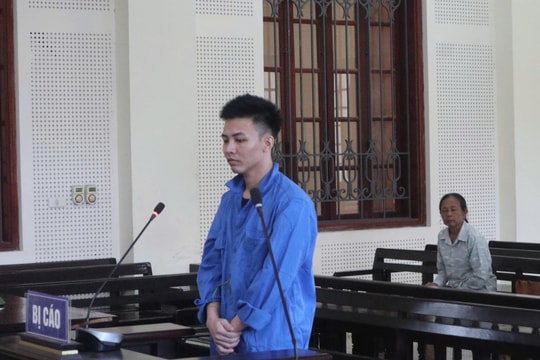
-6c936385358262921c0884226b06c05a.jpg)
